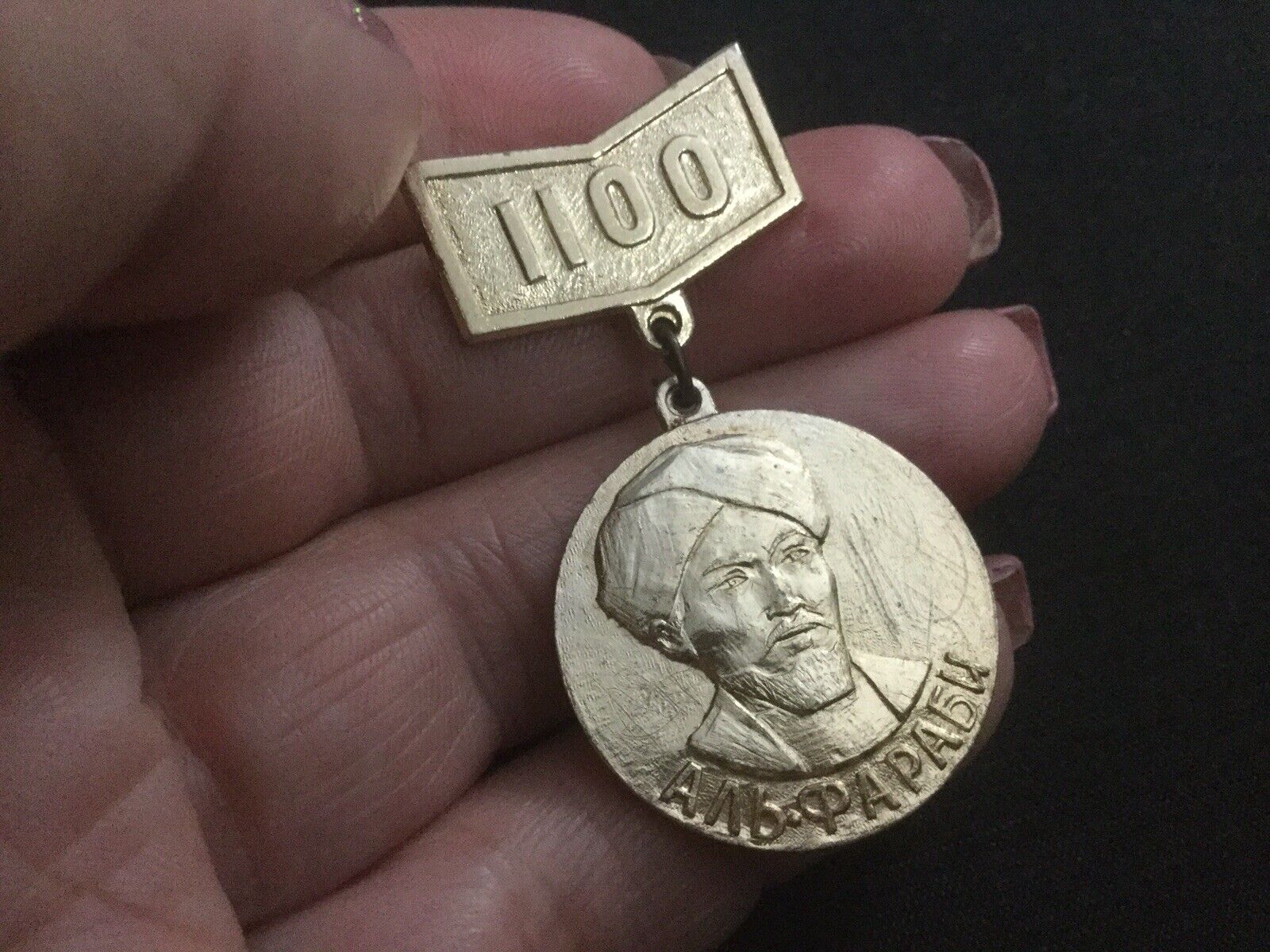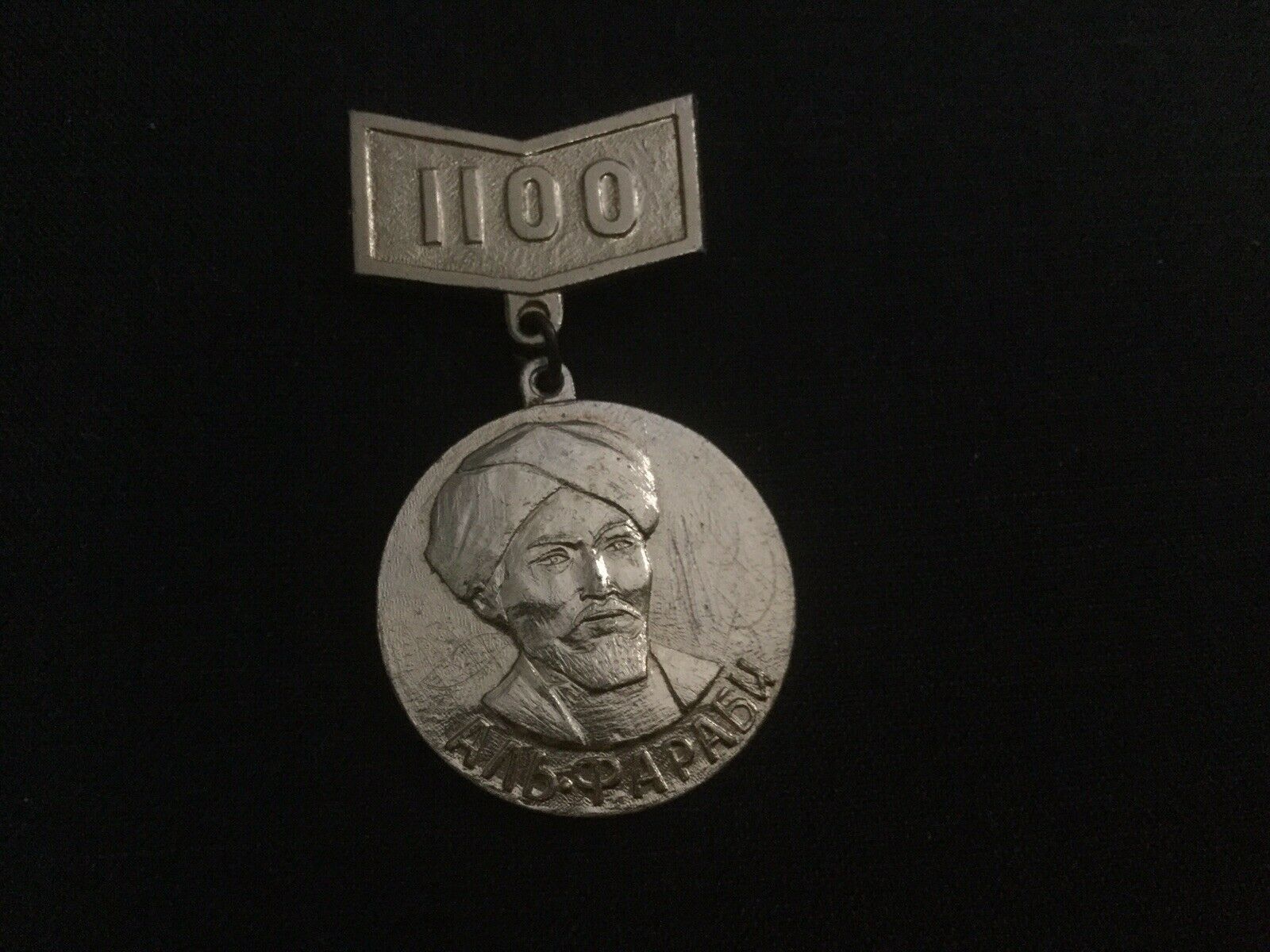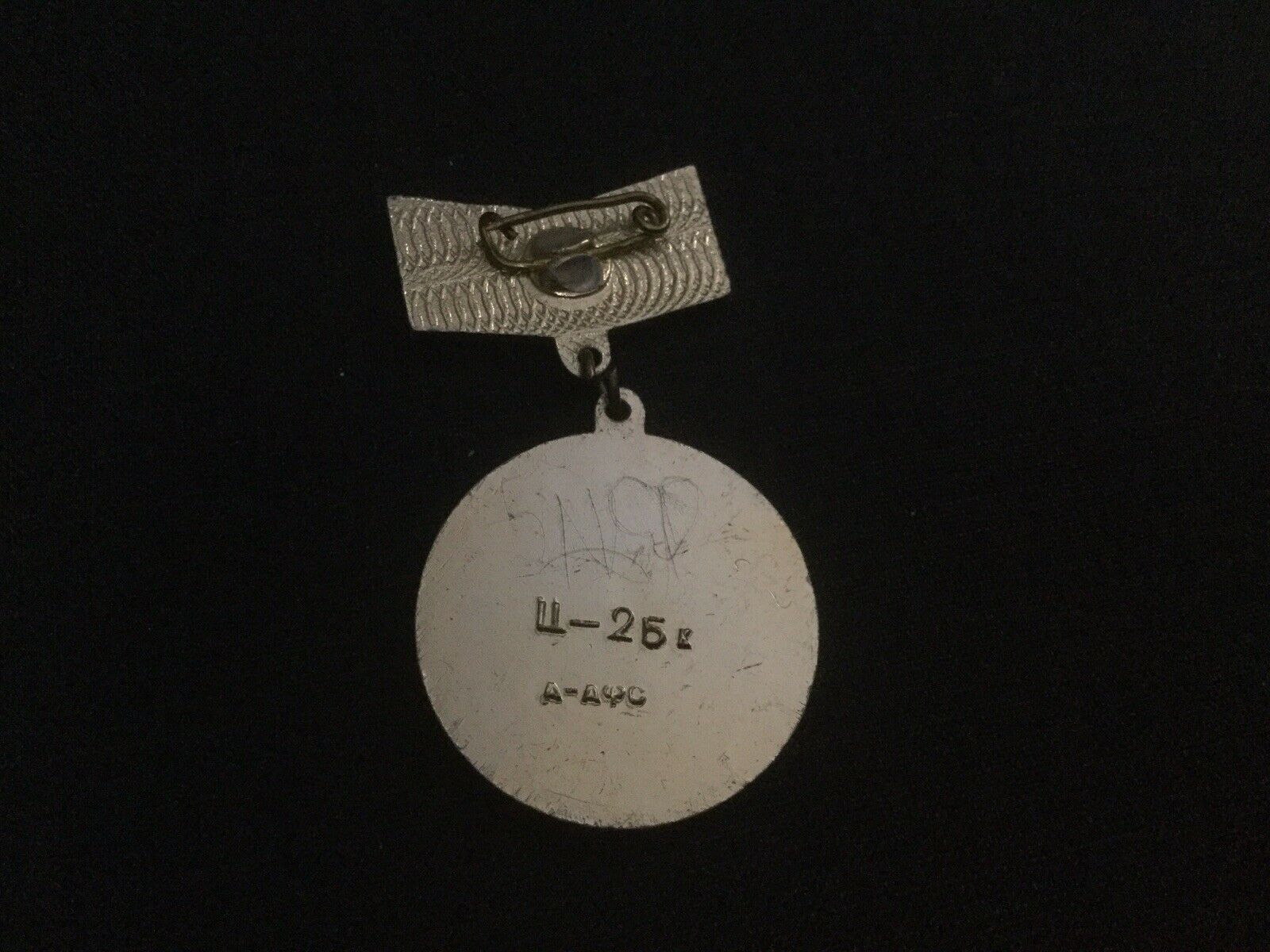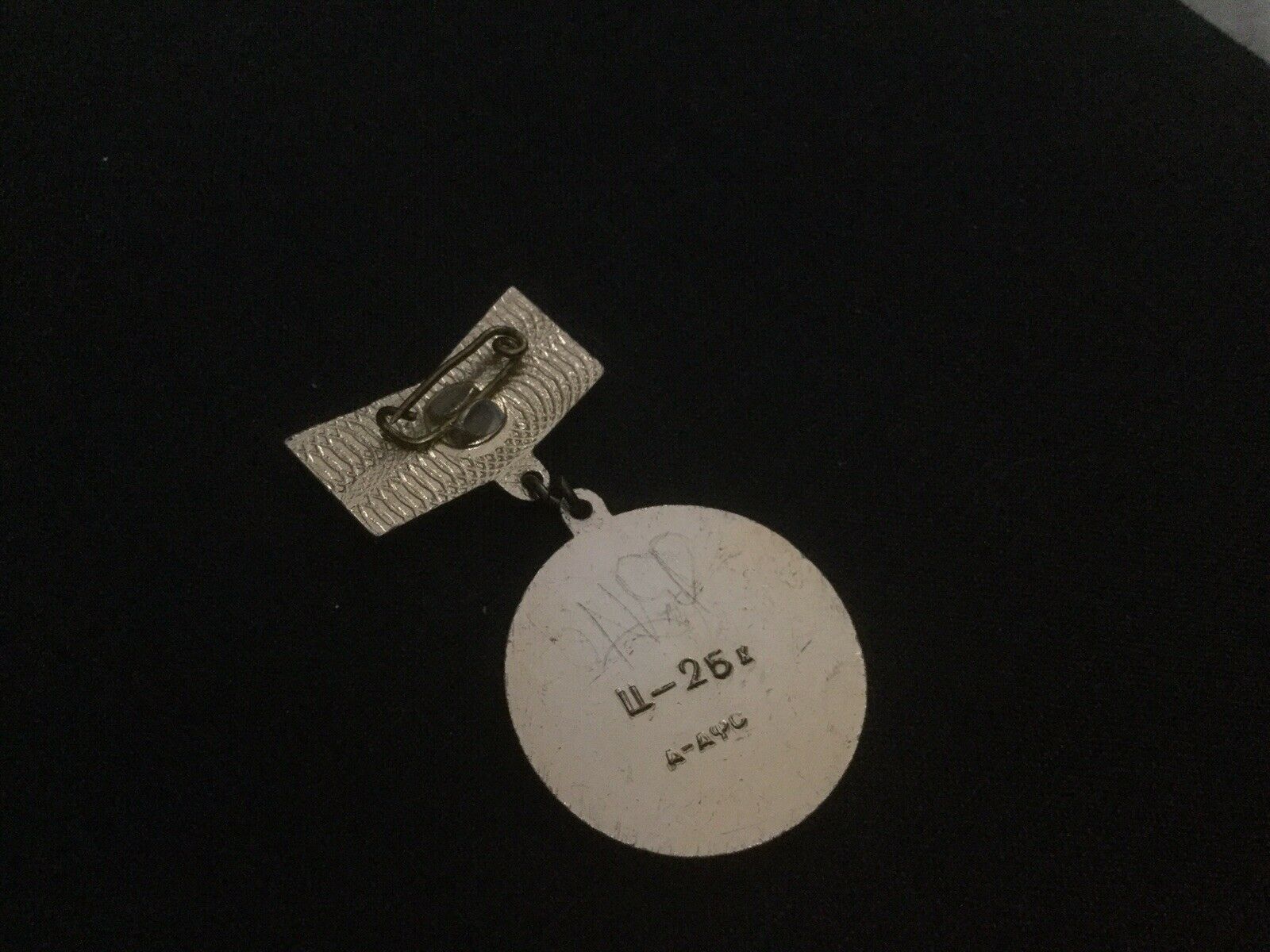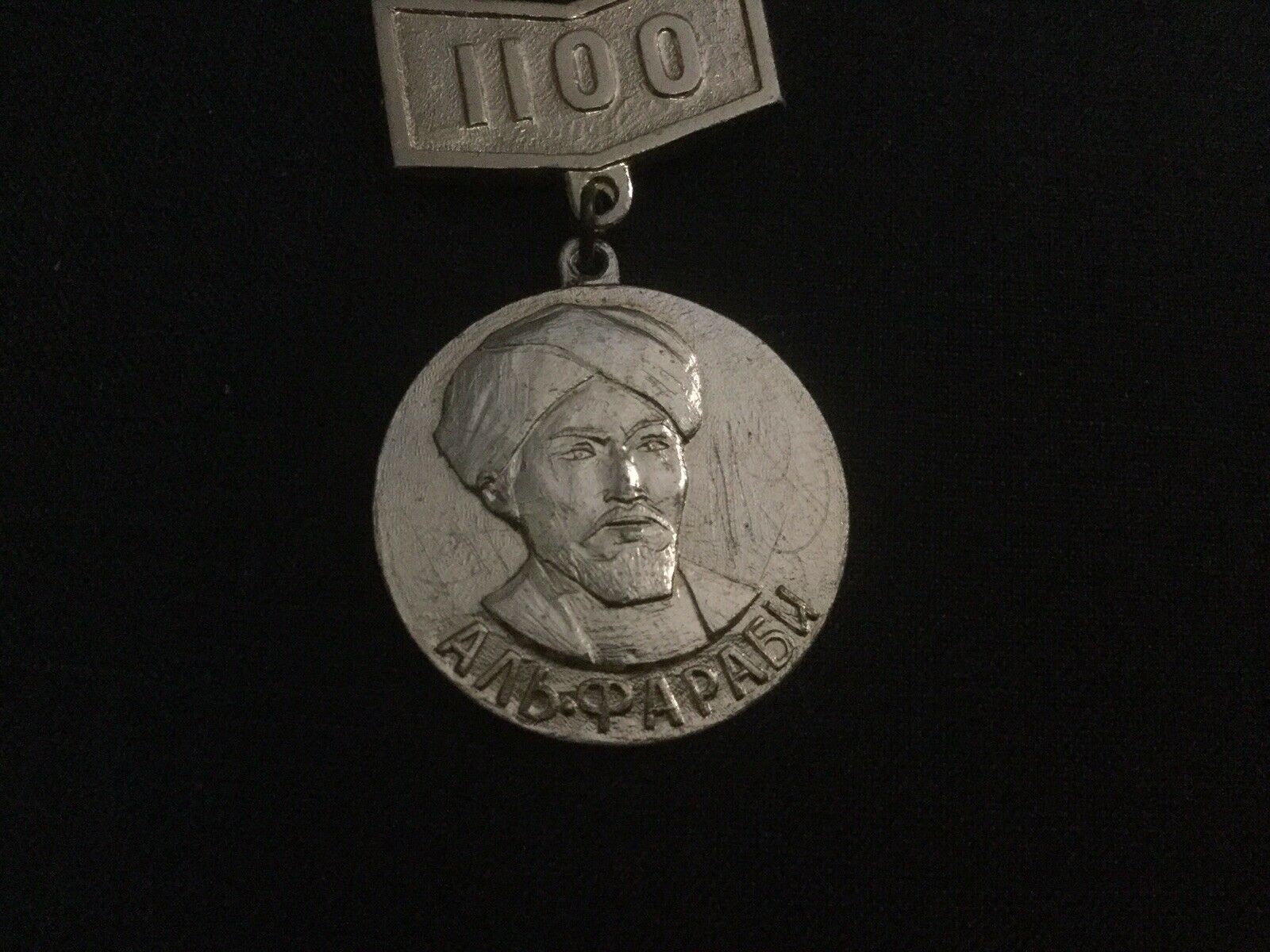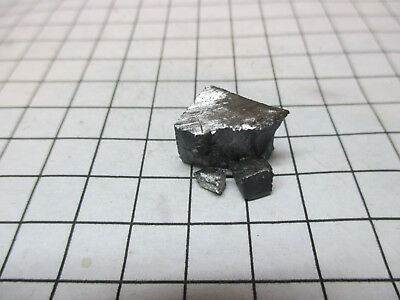-40%
Rare USSR AL-FARABI MEDAL MEDALLION PIN Badge with Soviet Price in kopek Signed
$ 5.28
- Description
- Size Guide
Description
Rare USSR AL-FARABI MEDAL MEDALLION PIN BadgeIt is signed with Soviet Price in kopek (25 kopek)
There is a sign of Al Farabi in RUSSIAN on the front.
It has some scratches on the front and on the back of the medal-pin. PLease see pictures. Overall it is in good condition because it has a USSR price stamp. So, it is from 1980s-1990s.
About Al Farabi from Wikipedia:
The existing variations in the basic accounts of al-Farabi's origins and pedigree indicate that they were not recorded during his lifetime or soon thereafter by anyone with concrete information, but were based on hearsay or guesses (as is the case with other contemporaries of al-Farabi). Little is known about his life. Early sources include an autobiographical passage where al-Farabi traces the history of logic and philosophy up to his time, and brief mentions by
Al-Masudi
,
Ibn al-Nadim
and
Ibn Hawqal
.
Said Al-Andalusi
wrote a biography of al-Farabi.
Arabic
biographers of the 12th–13th centuries thus had few facts to hand, and used invented stories about his life.
[2]
From incidental accounts it is known that he spent significant time (most of his life) in
Baghdad
with Christian scholars including the cleric Yuhanna ibn Haylan, Yahya ibn Adi, and Abu Ishaq Ibrahim al-Baghdadi. He later spent time in
Damascus
and in Egypt before returning to Damascus where he died in 950-1.
[10]
[
page needed
]
His name was Abū Naṣr Muḥammad b. Muḥammad Farabi,
[2]
sometimes with the family surname al-Ṭarḵānī, i.e., the element
Ṭarḵān
appears in a
nisba
.
[2]
His grandfather was not known among his contemporaries, but a name, Awzalaḡ, suddenly appears later in the writings of
Ibn Abī Uṣaibiʿa
, and of his great-grandfather in those of
Ibn Khallikan
.
[2]
His birthplace could have been any one of the many places in
Central Asia
-
Khurasan
that is known by that name. The name "parab/farab" is a
Persian
term for a locale that is irrigated by effluent springs or flows from a nearby river. Thus, there are many places that carry the name (or various evolutions of that hydrological/geological toponym) in that general area, such as
Fārāb
on the Jaxartes (
Syr Darya
) in modern
Kazakhstan
, Fārāb (modern
Türkmenabat
) on the Oxus
Amu Darya
in
Turkmenistan
, or even
Fāryāb
in
Greater Khorasan
(modern day Afghanistan). The older
Persian
[2]
Pārāb (in
Ḥudūd al-ʿĀlam
) or Fāryāb (also Pāryāb), is a common Persian toponym meaning "lands irrigated by diversion of river water".
[11]
[12]
By the 13th century, Fārāb on the
Jaxartes
was known as
Otrār
.
[13]
Scholars largely agree that Farabi's ethnic background is not knowable
